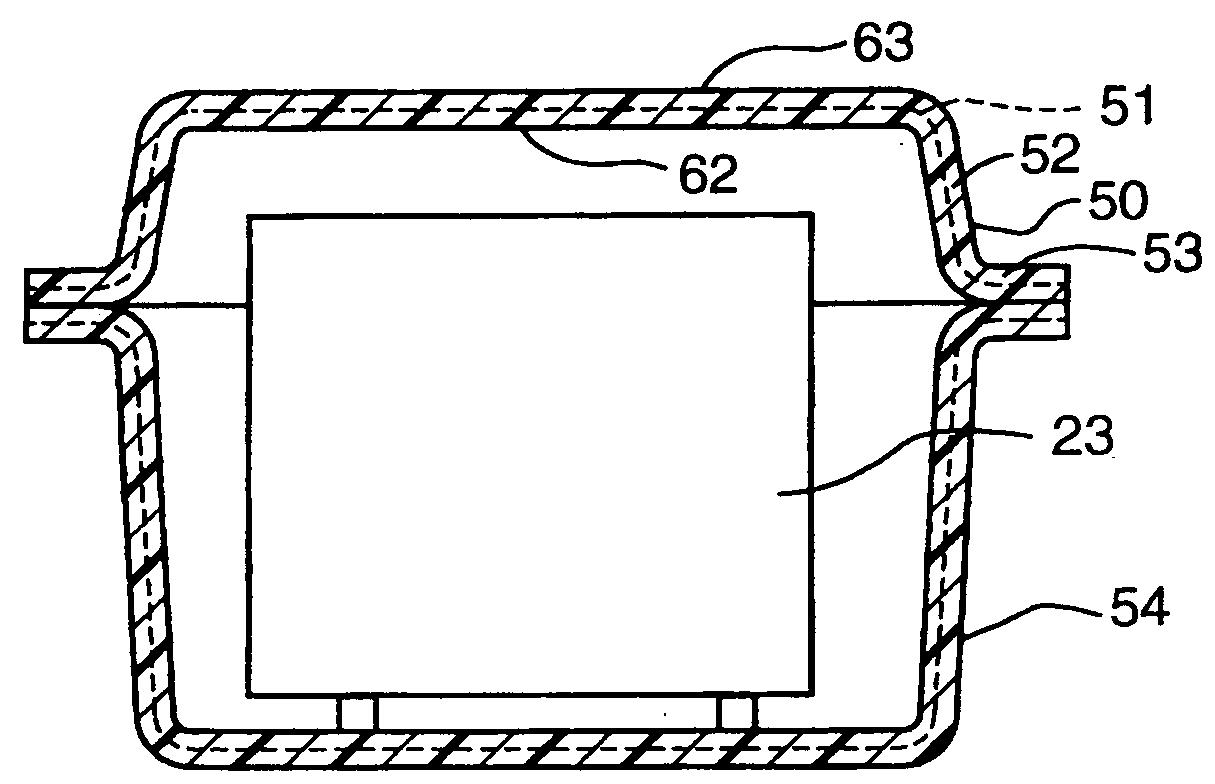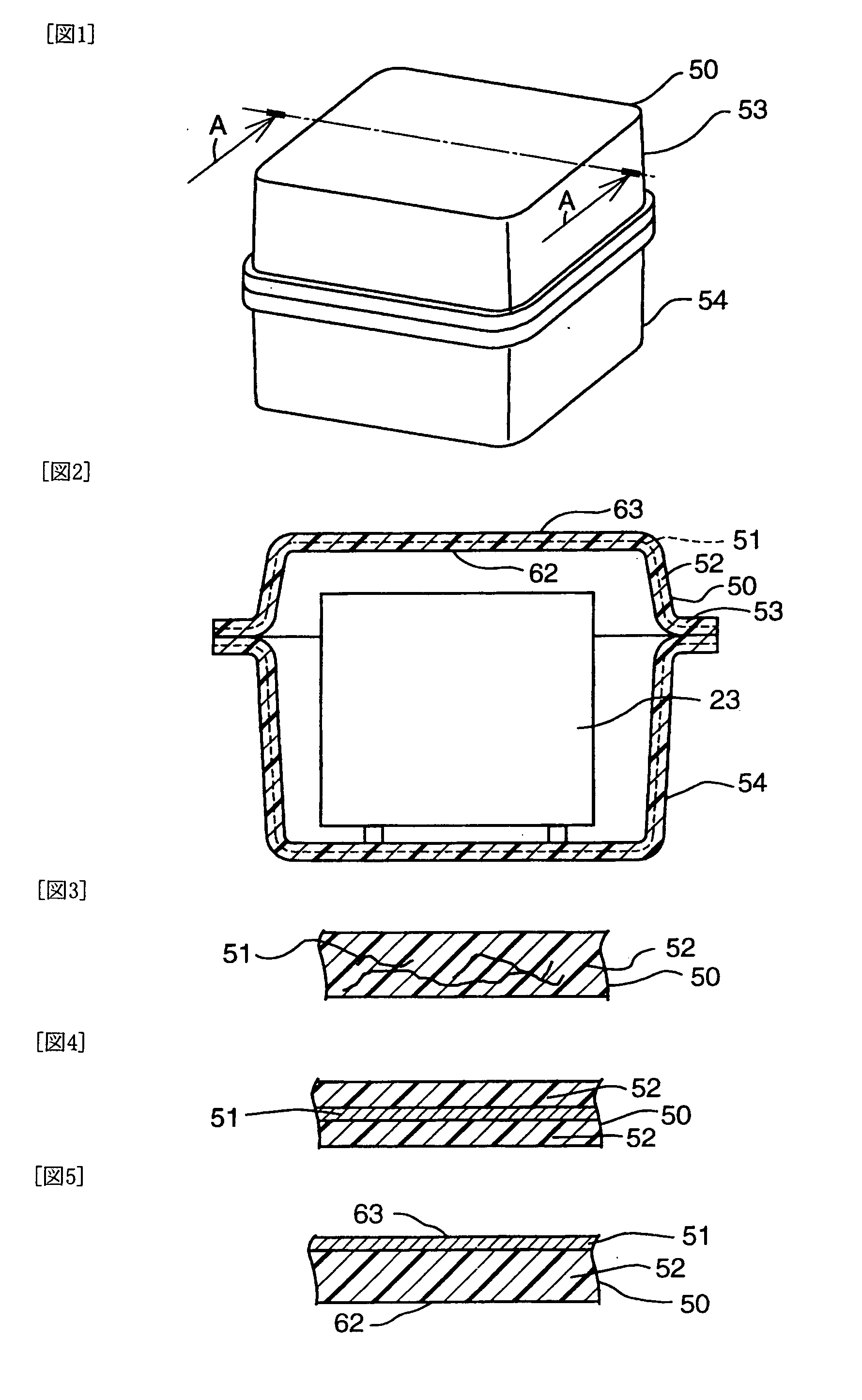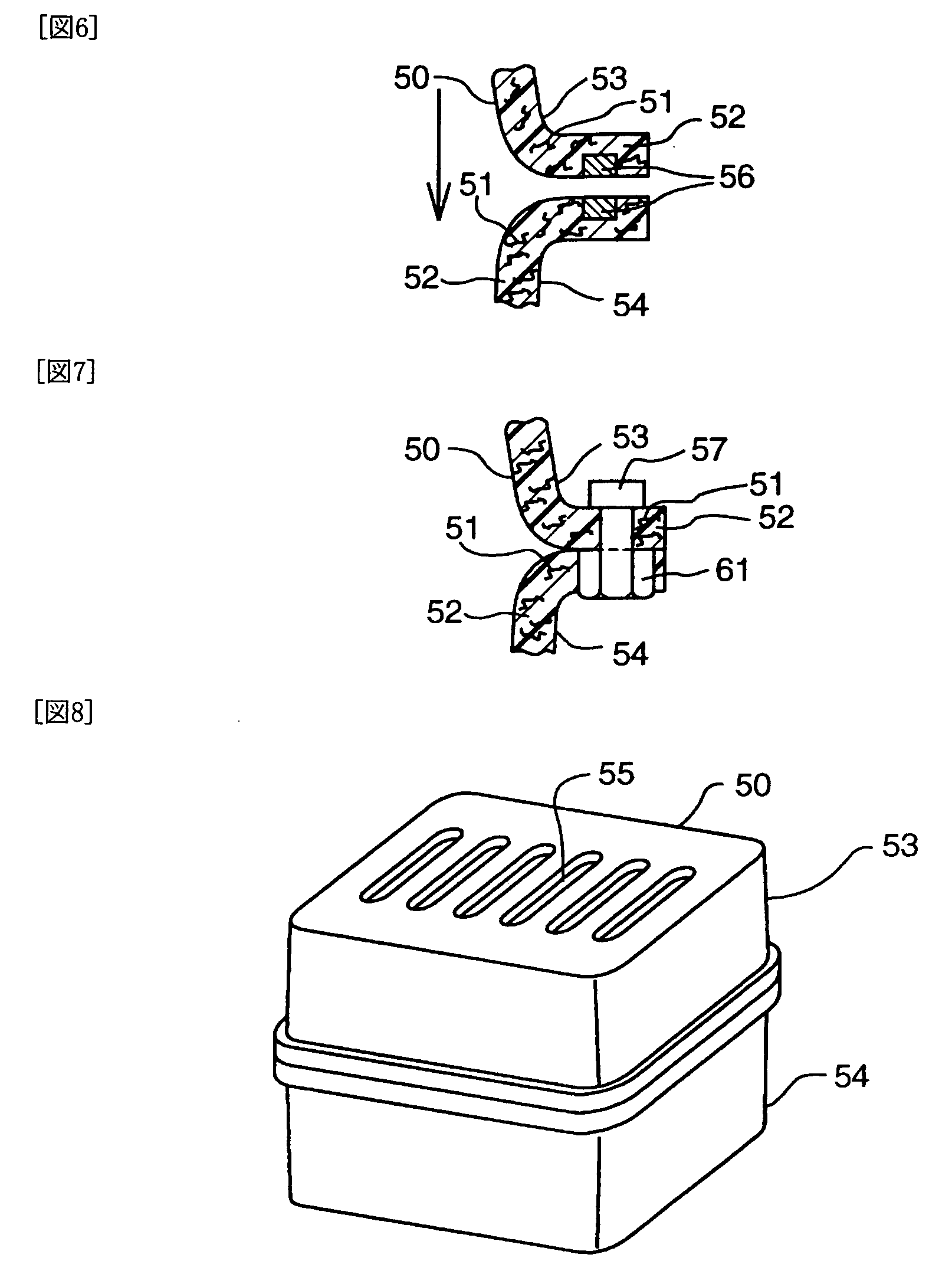Fuel Cell Stack Casing
a fuel cell and stack casing technology, applied in the field of fuel cell stack casing, can solve the problems of reducing the rigidity of the casing, reducing the electrical shield, etc., and achieve the effect of limiting and/or preventing the leakage of electromagnetic waves, and preventing the casing from entering the casing without losing the ventilating ability
- Summary
- Abstract
- Description
- Claims
- Application Information
AI Technical Summary
Benefits of technology
Problems solved by technology
Method used
Image
Examples
embodiment 1
>
[0074]In embodiment 1, as illustrated in FIG. 3, resinification of the fuel cell stack casing 50 is performed by causing the resin (for example, polyethylene) to contain conductive material 51 (for example, an aluminum filler, a graphite filler of a schuppen structure, etc.) The conductive materials 51 exist at random in the resin 52 and contact with each other to be electrically connected to each other. In a case where a part of conductive materials 51 is exposed to the inside surface 62 of the casing 50, an electrical insulator is desired to be provided between the fuel cell stack casing 50 and the fuel cell stack 23.
[0075]In other words, plural conductive elements having conductivity exist in parts of the fuel cell stack casing 50 (for example, the upper casing 53 and the lower casing 54) such that the plural conductive elements contact with each other and in a substantially planar state. These conductive elements are, for example, fibers, sphericals, or particles and are suffic...
embodiment 2
>
[0078]In embodiment 2, as illustrated in FIG. 4, resinification of the fuel cell stack casing 50 is performed by sandwiching a conductive layer 51 (for example, an aluminum thin plate, a graphite plate of a schuppen structure, etc., the same hereinafter) between two layers made from a non-conductive resin 52 (for example, polyethylene). The conductive layer 51 is not exposed to inside and outside surfaces of the casing 50.
[0079]With effects and technical advantages of embodiment 2 of the present invention, since during resinification of the fuel cell stack casing 50 the conductive layer 51 is performed between two layers made from a non-conductive resin 52, an electromagnetic shield can be formed over the entire plane of the wall of the casing. Since the conductive layer 51 is not exposed to the inside surface of the casing 50, there is no need to provide an electric insulator between the fuel cell stack 23 and the casing 50. Further, an electromagnetic shield of the coupling porti...
embodiment 3
>
[0081]In embodiment 3, as illustrated in FIG. 5, resinification of the fuel cell stack casing 50 is performed by layering a layer made from a non-conductive resin 52 (for example, polyethylene) and a layer of conductive material 51 (for example, an aluminum thin plate, a graphite plate of a schuppen structure, etc., the same hereinafter) provided on an outside surface 63 side of the casing (or on an inside surface 62 side of the casing, and in a case where the conductive material layer is provided on the inside surface side of the casing, an electric insulator is required to be provided on the inner side of the conducting material layer). The conductive surface 51 provided on the outside surface of the casing may be made by adhering an aluminum leaf on the casing. The conductive layer 51 is not exposed to the inside surface of the casing 50.
[0082]With effects and technical advantages of embodiment 3 of the present invention, since during resinification of the fuel cell stack casing...
PUM
| Property | Measurement | Unit |
|---|---|---|
| diameter | aaaaa | aaaaa |
| size | aaaaa | aaaaa |
| conductive | aaaaa | aaaaa |
Abstract
Description
Claims
Application Information
 Login to View More
Login to View More - R&D
- Intellectual Property
- Life Sciences
- Materials
- Tech Scout
- Unparalleled Data Quality
- Higher Quality Content
- 60% Fewer Hallucinations
Browse by: Latest US Patents, China's latest patents, Technical Efficacy Thesaurus, Application Domain, Technology Topic, Popular Technical Reports.
© 2025 PatSnap. All rights reserved.Legal|Privacy policy|Modern Slavery Act Transparency Statement|Sitemap|About US| Contact US: help@patsnap.com



